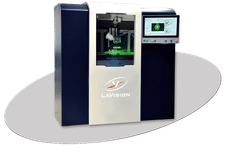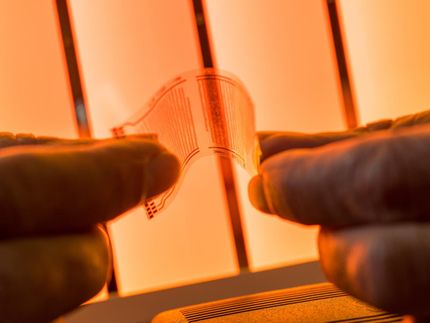Ciba Specialty Chemicals and Max Planck Institute to develop novel materials for printable organic electronics
Ciba specialty chemicals and the Max Planck Institute for Polymer Research have agreed to collaborate in the research of conductive materials for printable electronic materials. The three-year, multidisciplinary project focuses on the development of novel conductive polymers for printable applications. This collaboration is expected to speed up the introduction of improved materials. The production of devices such as sensors, photovoltaic cells, Radio Frequency Identification (RFID) tags, Organic Light Emitting Diodes (OLEDs) and other electronics shall benefit considerably from printing as against other techniques, such as etching.
"The collaboration is part of our strategy to strengthen Ciba Specialty Chemicals' research network in the fast-developing field of advanced functional materials for the electronic industry. Printable organic electronics offer great opportunities for new electronic devices. However, the performance, durability and handling requirements of the conductive materials currently available are not yet adequate for many major applications. Groundbreaking development work in this highly interdisciplinary field is still needed," says Martin Riediker, Chief Technology Officer of Ciba Specialty Chemicals.
Most read news
Organizations
Other news from the department science
These products might interest you

SprayMaster inspex by LaVision
Quality Control for Your Spraying Process Through Digital Spray and Particle Analysis
Reliable, Automated, Digital - The Geometry Measurement of Your Spraying Process in Real Time

FireSting-PRO by PyroScience
New fiber optic measuring device: Precise measurements even in the smallest volumes
Measure pH, oxygen and temperature even under sterile conditions

VEGAPULS | VEGABAR | VEGASWING by VEGA Grieshaber
Cyber-safe level measurement - here's how it works
Find out more about the unique sensor for liquid and solid media

Get the chemical industry in your inbox
By submitting this form you agree that LUMITOS AG will send you the newsletter(s) selected above by email. Your data will not be passed on to third parties. Your data will be stored and processed in accordance with our data protection regulations. LUMITOS may contact you by email for the purpose of advertising or market and opinion surveys. You can revoke your consent at any time without giving reasons to LUMITOS AG, Ernst-Augustin-Str. 2, 12489 Berlin, Germany or by e-mail at revoke@lumitos.com with effect for the future. In addition, each email contains a link to unsubscribe from the corresponding newsletter.
Most read news
More news from our other portals
See the theme worlds for related content
Topic world Sensor technology
Sensor technology has revolutionized the chemical industry by providing accurate, timely and reliable data across a wide range of processes. From monitoring critical parameters in production lines to early detection of potential malfunctions or hazards, sensors are the silent sentinels that ensure quality, efficiency and safety.

Topic world Sensor technology
Sensor technology has revolutionized the chemical industry by providing accurate, timely and reliable data across a wide range of processes. From monitoring critical parameters in production lines to early detection of potential malfunctions or hazards, sensors are the silent sentinels that ensure quality, efficiency and safety.




























































